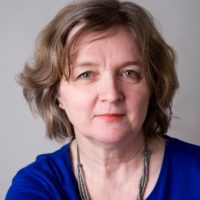Reitov, Ole, and Sara Whyatt. The Fragile Triangle of Artistic Freedom: A Study of the Documentation and Monitoring of Artistic Freedom in the Global Landscape. Ifa Edition “Culture and Foreign Policy”. Stuttgart: Institut für Auslandsbeziehungen, 2024. DOI: https://doi.org/10.17901/1201
This new study on artistic freedom, published by ifa – Institut für Auslandsbeziehungen, sets out to address policymakers, civil society organizations, donors, and many others with an urgent matter: even though the international awareness of the necessity to protect artistic freedom grows, many states and groups violate the rights of artists, and the true scale of censorship and suppression of artistic expression is unknown. Violations of artists’ rights often go underreported because organizations focusing on their documentation are few, understaffed, and suffer from funding insecurities. Having interviewed key actors within the artistic freedom landscape and analyzed reports on the subject, the authors show “how donors, international organisations and civil society organisations (CSOs) understand the current challenges they face” and identify “gaps in the promotion and protection of artistic freedom, including what is needed to address them.”
Excerpt
from the Foreword by Odila Triebel, Head of Dialogue and Research at ifa – Institut für Auslandsbeziehungen
The authors of this study, Sara Whyatt and Ole Reitov, highlight the increasing importance of artistic freedom for the international community. On the one hand, they observe growth in the understanding of this importance and, on the other, they identify insufficiencies pertaining to the system monitoring violations of and challenges to artistic freedom. The research sheds light on several reasons for this, among others the lack of data compilation and the existence of only very few donors. Violations of artistic freedom can take the form of censorship and repression in all stages of the artwork process, such as production, distribution and dissemination. Consequently, as the authors point out, not only artists and cultural practitioners but also institutions and the public can be affected.
Freedom of artistic expression is key for creativity and cultural production as well as the representation of diverse societies. It is the prerequisite for equal and sustainable partnerships with civil society actors. As mentioned by the authors, “CSOs, donors, and UN organisations must find ways to meet the present dependency on short-term policies and trends of support in these times of internal as well as international conflicts and new challenges brought upon traditional and societal values.”

